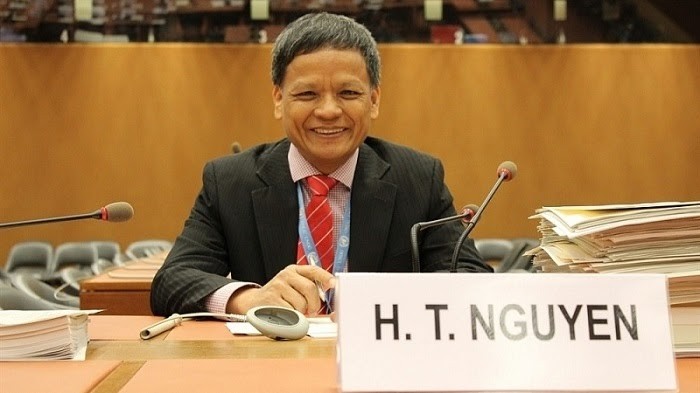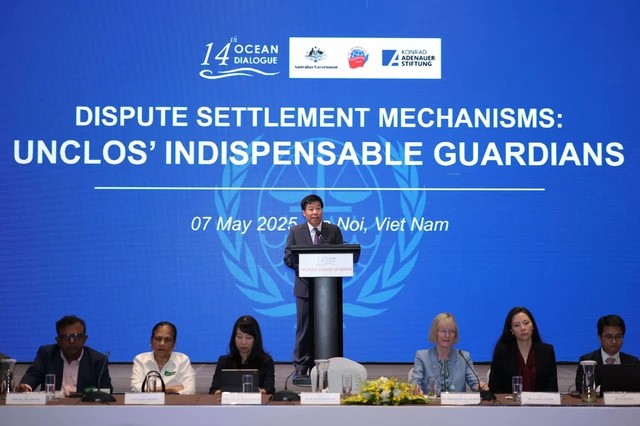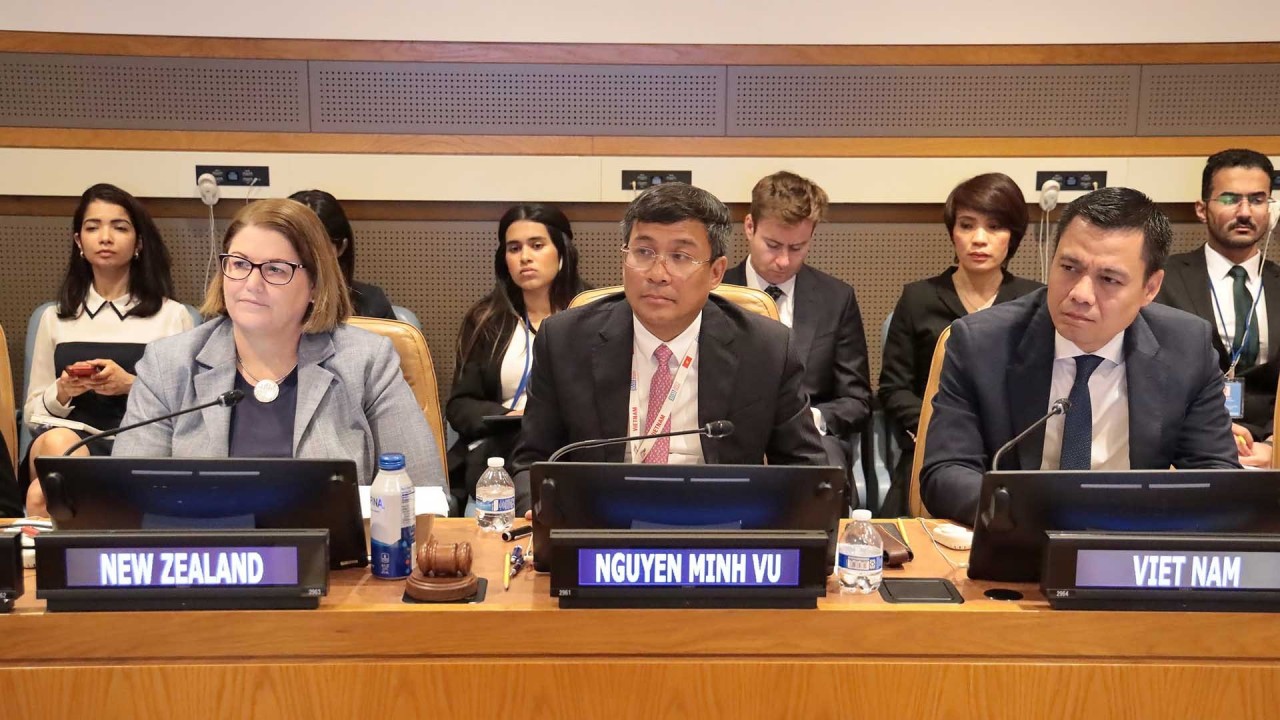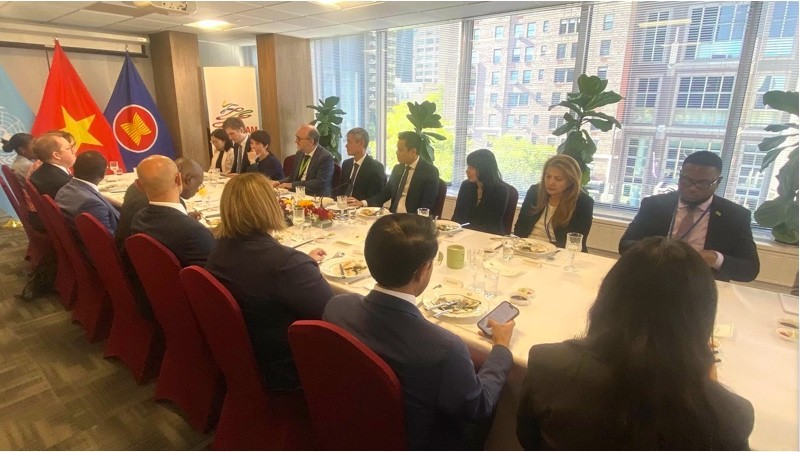Ambassador Nguyen Hong Thao on the importance of the UNCLOS
Speaking at the 73rd session of the International Law Commission (ILC) on August 5, Vietnamese Ambassador Nguyen Hong Thao, on behalf of the Asian States regional group, spoke highly of efforts by the commission as well as its contributions and support to developing countries. He also pledged to make more contributions to the progress and development of international law, for peace, friendship, cooperation and sustainable development worldwide.
The 73rd session is the final meeting of the commission in the 2017-22 tenure, which lasted up to six years due to the COVID-19 pandemic. The session took place from April 18 to June 3, and from July 4 to August 5.
Ambassador Nguyen Hong Thao was re-elected to the ILC for the 2023-27 tenure on November 12, 2021, with 145 out of 191 votes, ranking fourth among 11 candidates from the Asia-Pacific. During the 2017-2022 tenure, Ambassador Thao was the first Vietnamese to be elected to the ILC. He joined and offered ideas to the committee's important discussions regarding environmental protection in armed conflict, protection the atmosphere, rising sea levels and international law. |
The significance of the United Nations Convention on the Law of the Sea (UNCLOS)
On April 30, 1982, after 9 years of negotiations, the final content of the United Nations Convention on the Law of the Sea 1982 was unanimously adopted. The Convention was opened for signature on 10 December 1982 in Montego Bay, Jamaica.
According to Ambassador Thao, after 40 years, UNCLOS is one of the most important achievements in the history of international law of the sea. There are six significant elements of UNCLOS, said Ambassador Thao.
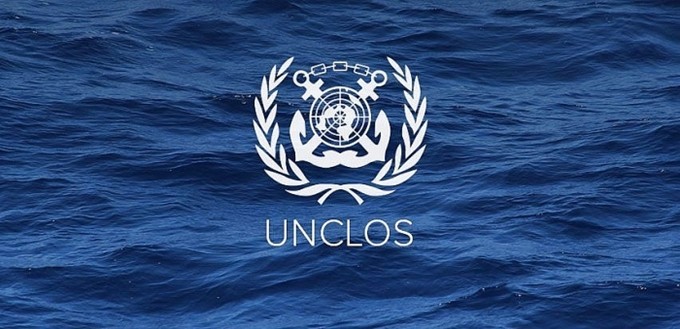 |
| (Photo: UN). |
The Convention establishes and promotes a legal regime for the management and conservation of marine resources, marine environment protection, marine scientific research, and marine technology transfer in a synchronous and effective manner on the basis of an integrated approach. integrated and ecosystem-based.
After the Convention, a series of initiatives in these areas were launched, such as: Chapter 17 of Action Plan 21 of the 1992 United Nations Conference on Environment and Development, Resolution No. 66/288 on July 27, 2012 on “The Future We Deserve” recognizing that oceans, seas and coastal zones form an integral and essential component of the world's ecosystem; and Resolution 71/312 of the United Nations General Assembly dated 6/7/2017 “Our oceans, our future” calls for action to implement Sustainable Development Goal 14: Conservation and sustainable use sustainable oceans, seas and marine resources for sustainable development.
UNCLOS protects freedom of navigation and safety at sea to the fullest extent possible
The conventions coordinates with the International Maritime Organization to create a favorable environment for international maritime traffic. crime at sea, especially cracking down on piracy and armed robbery at sea.
Under article 100 of the Convention, all states are required to cooperate to the fullest extent possible in the suppression of piracy.
UNCLOS establishes a new legal order at sea on the basis of fairness and protection of the legitimate interests of small and developing countries
This new legal order replaces the old legal order established by Western countries in the 1958 Law of the Sea Conventions, beneficial to countries with high marine science and technology and developed marine economy.
The third Law of the Sea Conference has created conditions for developing countries to voice their opinions. Two important new initiatives prior to the Third UN Conference on the Law of the Sea adopted by UNCLOS were Malta's proposal for a Heritage Seabed in 1967 and Kenyan's Exclusive Economic Zones (200 NM) in 1972. The interests of landlocked countries, geographically disadvantaged countries, and transit countries have been more equitable.
UNCLOS is the first legal document that provides for a compulsory conciliation mechanism and compulsory dispute settlement
These mechanisms have been increasingly used by many countries, reducing time and creating opportunities for countries to use third parties in resolving maritime disputes in a fair and objective manner.
UNCLOS also created new bodies for maritime dispute settlement and maritime management such as the International Tribunal for the Law of the Sea, the Commission on the Limits of the Continental Shelf or the Oceanic Bed Authority.
UNCLOS shows the highest codification of customary international law and the progressive development of international law in the maritime domain
In addition to the part related to the seabed - the common heritage of mankind, most of the provisions of the Convention are customary, so some countries that are not parties to the Convention such as the United States also inherit the results of the Convention.
According to Ambassador Thao, after the UN Charter, UNCLOS is the convention with the widest support from 168 members and non-member countries like the US. That is also why UNCLOS is considered the Constitution of the seas and ocean.
According to the Vietnamese Ambassador, UNCLOS is and will be one of the most important achievements in the history of development of international law of the sea.
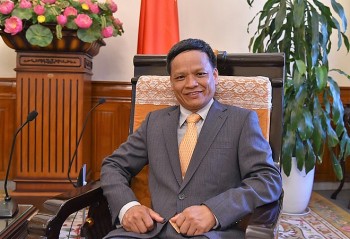 | Vietnamese Ambassador Re-elected to International Law Commission Ambassador Nguyen Hong Thao has been elected to the International Law Commission for the second time. |
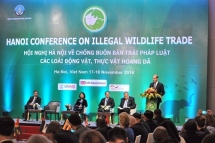 | Vietnam commits to strengthen law enforcement to curb illegal wildlife trade The Government of Vietnam recently hosted the Hanoi Conference on Illegal Wildlife Trade, the third in a series of global conference that started with the ... |
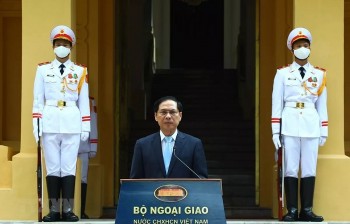 | Vietnam Plays Pivotal Role in ASEAN Vietnam is always proud to be a responsible member with significant contributions to the ASEAN. |
Recommended
 Seas and islands
Seas and islands
Vietnam Endorses Common Voice on Ocean Jurisdiction
 Seas and islands
Seas and islands
RoK Navy Ship Pays Friendly Visit to Da Nang City
 Seas and islands
Seas and islands
Naval Region 5 Promotes Reading Culture, Fosters Patriotism
 Seas and islands
Seas and islands
Coast Guard Region 2 Command Hosts Philippine Coast Counterpart
Popular article
 Seas and islands
Seas and islands
Vietnam - Thailand Navy: Coordination to Well Address Problems at Sea
 Seas and islands
Seas and islands
Honoring the Fallen: Incense Offering for the 37th Anniversary of Gac Ma
 Seas and islands
Seas and islands
Vietnam Coast Guard Expands International Cooperation for Maritime Security
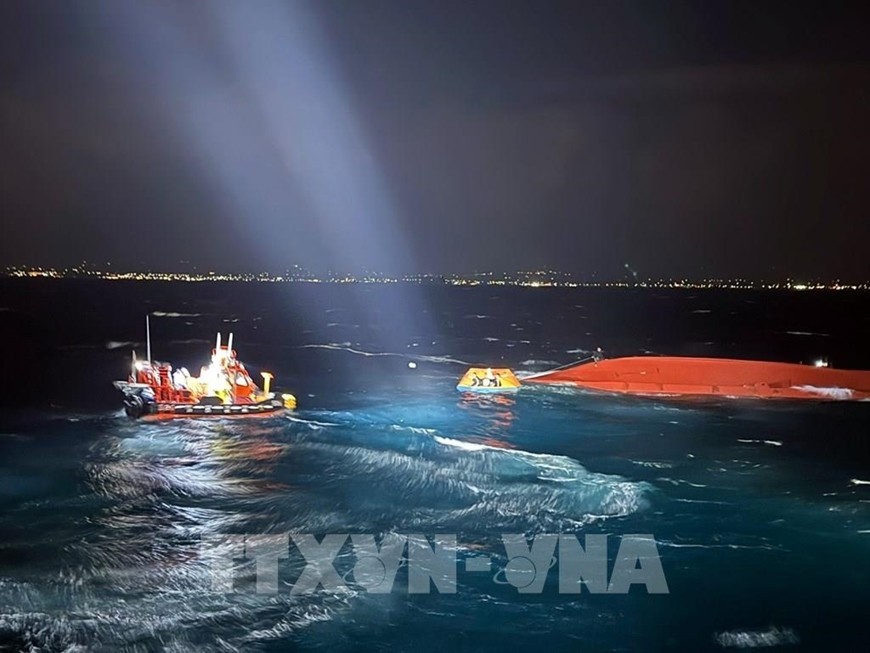 Seas and islands
Seas and islands

